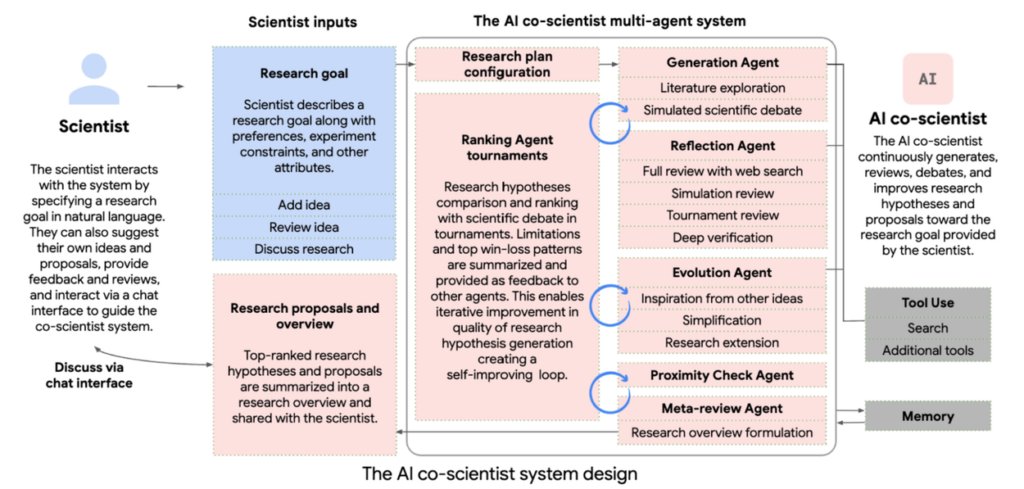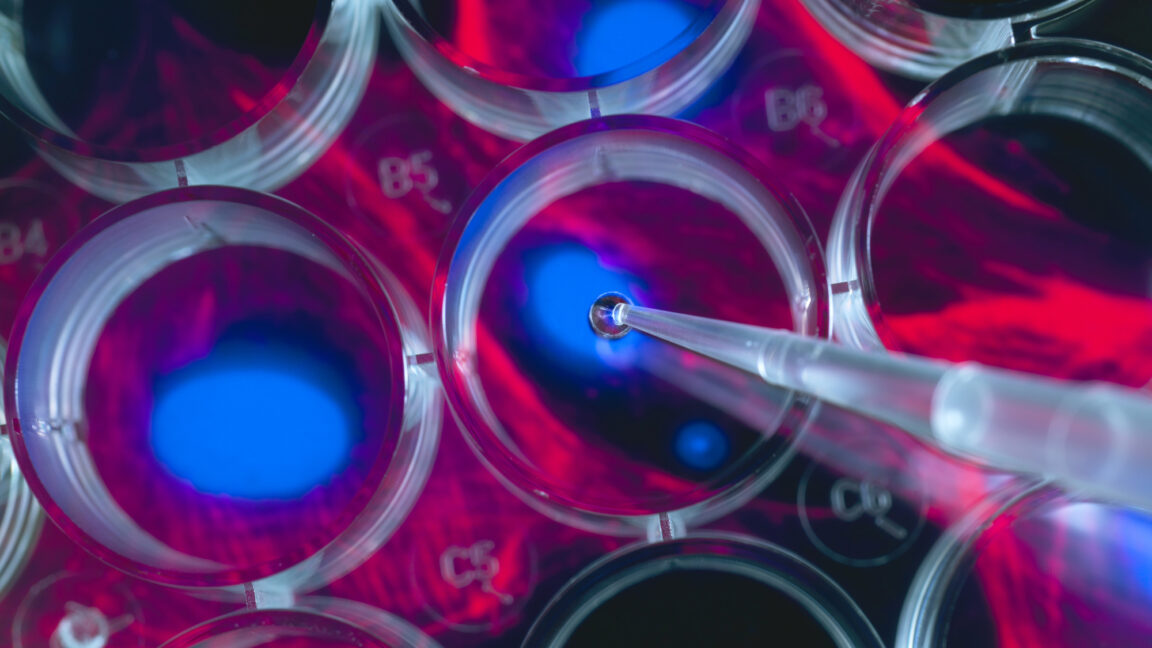Over the previous few years, Google has launched into a quest to jam generative AI into each product and initiative potential. Google has robots summarizing search outcomes, interacting along with your apps, and analyzing the info in your telephone. And generally, the output of generative AI techniques might be surprisingly good regardless of missing any actual data. However can they do science?
Google Analysis is now angling to show AI right into a scientist—nicely, a “co-scientist.” The corporate has a brand new multi-agent AI system primarily based on Gemini 2.0 aimed toward biomedical researchers that may supposedly level the way in which towards new hypotheses and areas of biomedical analysis. Nonetheless, Google’s AI co-scientist boils all the way down to a elaborate chatbot.
A flesh-and-blood scientist utilizing Google’s co-scientist would enter their analysis objectives, concepts, and references to previous analysis, permitting the robotic to generate potential avenues of analysis. The AI co-scientist incorporates a number of interconnected fashions that churn by the enter knowledge and entry Web assets to refine the output. Contained in the device, the completely different brokers problem one another to create a “self-improving loop,” which is analogous to the brand new raft of reasoning AI models like Gemini Flash Pondering and OpenAI o3.
That is nonetheless a generative AI system like Gemini, so it would not really have any new concepts or data. Nonetheless, it will possibly extrapolate from current knowledge to doubtlessly make respectable recommendations. On the finish of the method, Google’s AI co-scientist spits out analysis proposals and hypotheses. The human scientist may even discuss with the robotic concerning the proposals in a chatbot interface.

The construction of Google’s AI co-scientist.
You’ll be able to consider the AI co-scientist as a extremely technical type of brainstorming. The identical approach you’ll be able to bounce party-planning concepts off a shopper AI mannequin, scientists will be capable to conceptualize new scientific analysis with an AI tuned particularly for that function.
Testing AI science
Right this moment’s standard AI techniques have a well known drawback with accuracy. Generative AI at all times has one thing to say, even when the mannequin would not have the proper coaching knowledge or mannequin weights to be useful, and fact-checking with extra AI fashions cannot work miracles. Leveraging its reasoning roots, the AI co-scientist conducts an inner analysis to enhance outputs, and Google says the self-evaluation rankings correlate to higher scientific accuracy.
The interior metrics are one factor, however what do actual scientists suppose? Google had human biomedical researchers consider the robotic’s proposals, and so they reportedly rated the AI co-scientist larger than different, much less specialised agentic AI techniques. The specialists additionally agreed the AI co-scientist’s outputs confirmed higher potential for influence and novelty in comparison with normal AI fashions.
This does not imply the AI’s recommendations are all good. Nonetheless, Google partnered with a number of universities to check among the AI analysis proposals within the laboratory. For instance, the AI prompt repurposing sure medication for treating acute myeloid leukemia, and laboratory testing prompt it was a viable concept. Analysis at Stanford College additionally confirmed that the AI co-scientist’s concepts about remedy for liver fibrosis have been worthy of additional examine.
That is compelling work, definitely, however calling this technique a “co-scientist” is maybe a bit grandiose. Regardless of the insistence from AI leaders that we’re on the verge of making residing, pondering machines, AI is not wherever near having the ability to do science by itself. That does not imply the AI-co-scientist will not be helpful, although. Google’s new AI might assist people interpret and contextualize expansive knowledge units and our bodies of analysis, even when it will possibly’t perceive or supply true insights.
Google says it desires extra researchers working with this AI system within the hope it will possibly help with actual analysis. researchers and organizations can apply to be a part of the Trusted Tester program, which offers entry to the co-scientist UI in addition to an API that may be built-in with current instruments.

